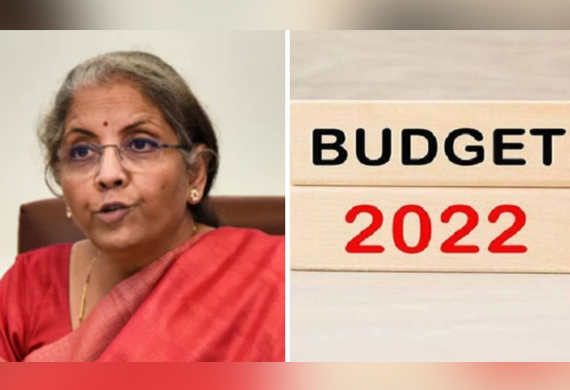
What Indian Women Expect from the Union Budget 2022
By: Anindita, writer
8 million are women of the 35 million unemployed in India who are actively looking for work in India. For better formal job opportunities for women, the upcoming Union Budget 2022-2023 needs to set the ground running. With policy and relief recommendations for women, girls and trans genders, the Feminist Policy Collective (FPC), which includes a large network of feminist organisations, individual researchers, academics and policy advocates, has put together an ‘Envisioning a Feminist Policy Response to the Pandemic’ for the upcoming budget. It said 47 per cent of women in the workforce suffered a permanent job loss till December 2020, while the same number for men was only 7 per cent. Despite this, the Union Budget 2021-22 saw a reduction in outlay for Integrated Child Development Services (ICDS), or Anganwadi services, it said.
Some of the demands:
- Expanding the scope of guaranteed employment to urban areas and providing immediate relief to women in poverty through enhancing the number of days of work under MGNREGS.
- Linking skill training with industry and service sector needs and extending the functioning of Anganwadis to 8 hours to provide crèche facilities.
- Prioritizing the socially and economically poorer sections from Socio-Economic Caste Census, Universal Social Protection Coverage for all marginalized sections
- For the elderly people living with disabilities, transgender persons, single women, those in informal employment or working as farm labour and all frontline workers in the community enhance pensions to INR 10,000 per month
Increase funds for upskilling:
“The need of the hour is a woman-friendly budget and not a “macho” budget. Whilst the Indian government has taken some good and positive steps in the last year’s budget towards “bridging the gap” between male and female gender, a lot more needs to be done. There is a lot of clamours for the Government to ring in significant changes in this regard to encourage women’s entrepreneurship and equality. Some of these measures are increasing funds for upskilling of women especially in the domain of science and technology, rationalising salaries to bring women’s salary at par with males, policies to encourage the manufacture of indigenous and cheap biodegradable sanitary pads (thus, tackling the dual grave issues of menstrual health of women and environment),” said Prasenjit Chakravarti, Partner, Khaitan & Co.
Easy access to working capital:
To pump in oxygen to the SMSE space and encourage women entrepreneurship, easy access to working capital loans and interest-free loans for women leading SMSEs is vital. “An an entrepreneur in the hospitality sector my business has taken a big hit. I would expect our finance minister to give tax incentives, provide easy access to working capital to boost the sector which had to face several lull periods due to the pandemic-induced lockdowns,” said Ritika Nangia, founder of funcart.in.
Menstrual hygiene:
Women’s wellness especially menstrual hygiene should be emphasized in the Union Budget. “We already have tax exemption on sanitary pads, however, this could be extended to manufacturing and production. Further, decreasing import duties for raw materials could bridge the gap between supply and demand as well as encourage more Indian manufacturers to start manufacturing biodegradable pads in the country. The Government should promote the use of biodegradable menstrual products to bring down waste produced by plastic products-a figure which currently stands at a staggering 12.3 billion annually,” said Anika Parashar, Founder and CEO, The Woman Company.
Job incentives:
Of the population working, women constitute only 18.6 per cent and due to the pandemic, only 16 per cent of employed women were able to keep their job during and after the lockdown. Any incentive or subsidy linked to job creation will be a welcome move by the government in the upcoming budget, feels Alka Goel, Founding Partner, Alkemi Growth Capital.
Tax benefits:
It is vital that the budget addresses women’s distinct economic roles, to move steadfast on the road to recovery and takes this opportunity to put them at the centre of investment. To ensure the safety, well-being, education and employment of women, this budget needs to focus on both long term and short-term and direct and indirect measures, according to several women entrepreneurs.
Tax concessions:
“A higher deduction under section 80C to avail tax rebate will be effective because this encourages individuals to opt for more long term savings and investment. The rebate of INR 150,000 is limited and has remained unchanged for a long time. There are many taxpayers for whom the section 80C limit get exhausted with their EPF and housing loan principal repayment. At the same time, additional tax benefits for home loans can also act as a good incentive,” said Harshad Chetanwala, Co-founder My WealthGrowth.com.
Home loan:
“In the upcoming Union Budget, the government should consider providing additional tax benefits to women home buyers to encourage home ownership. The government under Section 24 currently allows for a deduction of INR 2 lakh on housing loan interest. This could be increased to INR 3 lakhs for women home buyers,” said Rajani Sinha, Chief Economist & National Director Research at Knight Frank India.






